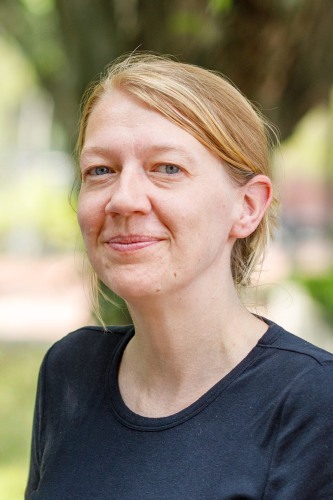
Rachel Baker, Ph.D.
Biography
Dr. Baker is an Assistant Professor with a joint appointment between the Department of Epidemiology at the Brown University School of Public Health and the Institute at Brown for Environment and Society.
Her work explores and seeks to understand the implications of climate change for human health, with a particular focus on infectious disease, using a combination of statistical inference and mechanistic disease modeling. As climate change continues to pose new challenges for public health, Dr. Baker’s work will help the Pandemic Center identify best solutions to protect humans and the environment. Dr. Baker’s work has been published in several journals including Science, Proceedings of the National Academy of Sciences (PNAS), Nature Communications and Climatic Change and featured in media outlets including The New York Times, The Atlantic, WIRED Magazine and Scientific American.